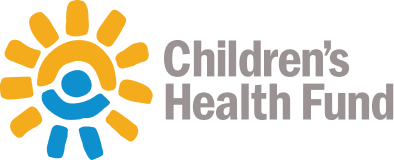How You Can Help
Planned Giving

Other Forms of Planned Gifts
There are many different ways to make a “planned gift.”
You can benefit Children’s Health Fund through life insurance, retirement plans, stock and investment accounts, and charitable trusts.
Through planned gifts you create mutually beneficial solutions for you and your family, while helping to support CHF now and in the future.
You can designate Children’s Health Fund as the beneficiary of a life insurance policy, which can provide charitable deductions for your estate.
You can designate Children’s Health Fund as a beneficiary of your IRA, Roth, 401(k), 403(b) or other qualified pension plan. You should consult with your tax advisor regarding the tax benefits of such gifts.
Naming Children’s Health Fund as the beneficiary of a qualified retirement plan will accomplish a charitable goal while realizing significant tax savings. It can be costly to pass such assets on to your heirs because of heavy tax consequences. By naming Children’s Health Fund as a beneficiary of a retirement plan, you maintain control over the asset while alive, but at your death the plan passes to support Children’s Health Fund free of both estate and income taxes.
You receive an income tax deduction for the fair market value of the securities on the date of transfer, no matter what you originally paid for them.
How It Works
Contact your broker or investment account holder about a T.O.D. (Transfer on Death) or beneficiary designation form for mutual funds or other types of investment accounts.
Benefits
- You receive an income tax deduction for the fair market value of the securities on the date of transfer, no matter what you originally paid for them.
- You pay no capital gains tax on the transfer when the stock or share of investment account is sold.
A Charitable Remainder Unitrust is a charitable trust that pays a percentage of its principal to the donor and/or other income beneficiaries the donor names for life, for a term of 20 years, or for a combination of both. Children’s Health Fund can be named as the sole beneficiary or in conjunction with others. Because it is revalued annually, payments may increase or decrease over time. The donor receives a charitable income tax deduction for a portion of the value of the assets placed in the trust at the onset. After the Charitable Remainder Unitrust terminates, the balance goes to Children’s Health Fund.
A Charitable Lead Trust is the reverse of a Charitable Remainder Trust. After a donor makes a gift, the Charitable Lead Trust pays income to the donor’s designated charity first, for a term of years or for the donor’s lifetime. After that, the trust assets are passed back to the donor or their designated beneficiaries.
If you are interested in learning more about planned giving please contact plannedgiving@chfund.org or 212-535-9400 x8658.
The gift planning information presented on this site is intended as general. It is not to be considered as tax, legal, or financial advice. Individual states have different requirements. Therefore we advise you to consult your own personal advisor or estate attorney prior to final decisions.







